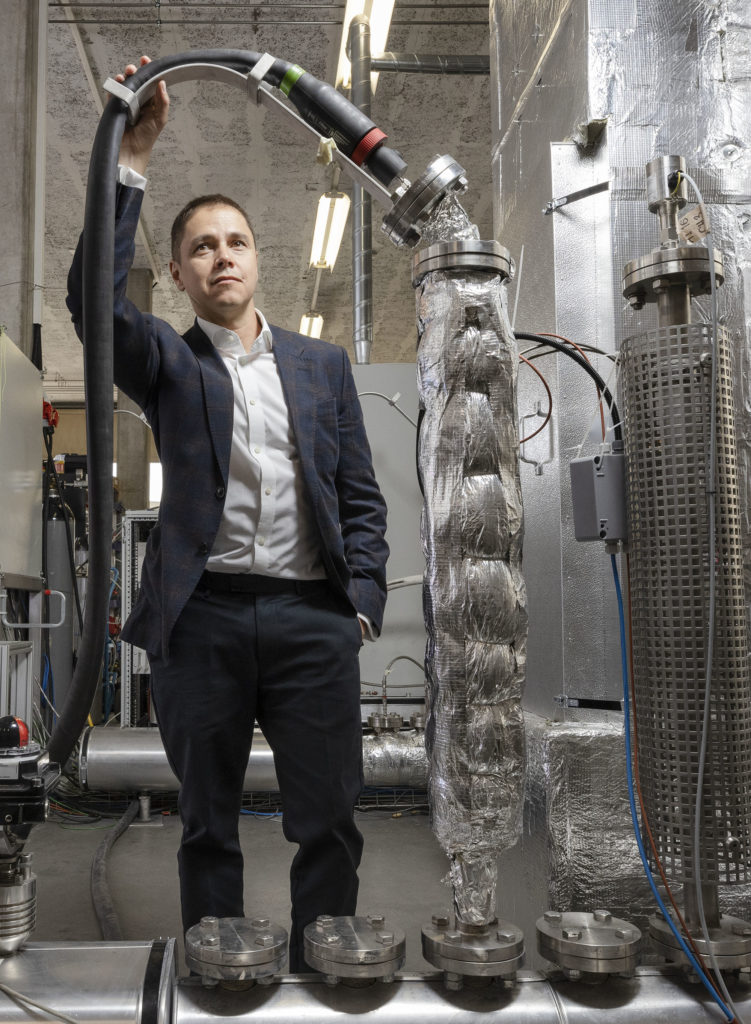Turning marine pollution into fertiliser was Daphne Technology’s initial ambition. The company adopted the principles of the circular economy with a view to reducing emissions of, among other things, sulphur oxides (SOx) and nitrogen oxides (NOx) from ship engines. This technology developed to purify and recycle exhaust gases may not yet have conquered the oceans, but alongside this, Daphne Technology is continuing to develop its filtration system for land-based applications, also adapting to the ever-increasing use of natural gas (methane, CH4) in place of diesel in numerous industries. “In addition to maritime transport, our systems are designed for oil and gas production sites, mines, energy producers, cement works and other industrial activities where reducing CO2 emissions is a challenge,” says founder and CEO Mario Michan.
The company’s SulPure® process, which reduces sulphur oxides emissions by up to 99.1%, was shown to be effective first in a land-based and then in a maritime prototype. This has enabled Daphne Technology to launch several feasibility studies in Europe (for applications in the cement industry) and Brazil (in the energy production sector). Meanwhile, its SlipPureä technology has passed muster in a full-size demonstrator, achieving methane emission reductions of up to 75%. “It’s less often mentioned, but the global warming potential of methane is actually 28 times greater than that of CO₂,” says Mario Michan. In 2023, Daphne Technology set up the first industrial demonstrations of this technology in the United States, in land-based and maritime applications. And this pioneering company intends to roll out its solutions all over the world.
Between 2021 and 2022, Daphne Technology raised CHF 23 million in capital funding from investors including Trafigura, Shell Ventures, AET Tankers and J.P. Morgan. This capital is set to finance its further technological and commercial development, including work on reducing CO2 emissions from methane flaring at oil extraction sites, in partnership with Saudi Aramco. “We already know how to capture sulphur oxides and methane, and we are on the brink of being able to capture CO2,” says CEO Mario Michan. From 2027 onwards, the company will turn its attention to filtration systems for nitrogen oxides (NOx) and nitrous oxide (N2O), a powerful greenhouse gas resulting from the use of various substances including nitrogen derivatives of hydrogen such as ammonia (NH3). “Our aim is to combat global warming by developing solutions to reduce emissions of all the greenhouse gases,” he concludes.

Daphne Technology SA